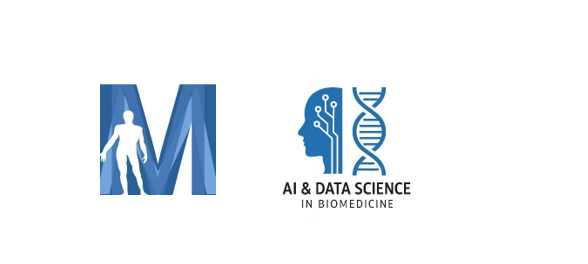
Laboratory for Artificial Intelligence & Data Science in Biomedicine
Laboratory for Artificial Intelligence & Data Science in Biomedicine

 Laboratorij za umjetnu inteligenciju i podatkovnu znanost u biomedicini
Laboratorij za umjetnu inteligenciju i podatkovnu znanost u biomedicini
Head of Laboratory

Research
The Laboratory develops and evaluates trustworthy AI systems for healthcare, with a dual focus on (1) clinical decision support and safety (error detection, triage, multimodal reasoning with LLMs/agents) and (2) biomedical data science (dataset collection and traditional machine learning for selected healthcare applications). Priority application domains include cardiometabolic diseases, ophthalmology, oncology, emergency and internal medicine, public-health analytics, antimicrobial resistance, and pediatric surgery. In medical education, the Lab builds adaptive curricula, virtual patients, OSCE simulations with multimodal agents, and rigorous assessment/feedback pipelines while embedding privacy, GDPR compliance, bias audits, transparency, and academic integrity. Infrastructure combines on-prem GPU workstations and verified cloud environments with data anonymization/pseudonymization and secure model training/inference.
Projects
Josip Vrdoljak, MD, PhD, MSc (AI)
• 2025-present “Proof-of-concept: Integrating large language models (LLMs) in KBC Split”, PI
• 2025-present “AI-IBD: Personalized medicine in IBD—integrating clinical, laboratory and AI models for outcome prediction”, collaborator
• 2025-present “Q&AI: AI-assisted platform for question bank creation and management”, collaborator
Zvonimir Boban, PhD (phys.)
• 2024-present “Smart guide for depth/angle assessment in orthopedic drilling (PoC)”, PI
• 2025-present “Q&AI: AI-assisted platform for question bank creation and management”, PI
Joško Božić, MD, PhD
• 2014-2021 “Translational research on breathing neuroplasticity and intermittent hypoxia in anesthesia and sleep”, HRZZ, associate
• 2025-present “AI-IBD: Personalized medicine in IBD—integrating clinical, laboratory and AI models for outcome prediction”, PI
Group members
Future directions
The Laboratory will expand secure GPU infrastructure and MLOps, launch multi-center clinical pilots at KBC Split, and strengthen data governance (Data Access Committee, Ethics Board). We will scale explainable, bias-audited AI for high-impact clinical pathways (e.g., diabetic cardiomyopathy risk, glaucoma and retinal analytics, oncology response prediction), grow open-science assets (datasets, code where permissible), and formalize education programs (elective courses, professional upskilling, and a summer school in biomedical data science). Strategic funding will be pursued via HRZZ, Horizon Europe, structural funds, and industry partnerships to ensure sustainable translation of AI into clinical practice and medical education.
Print page




